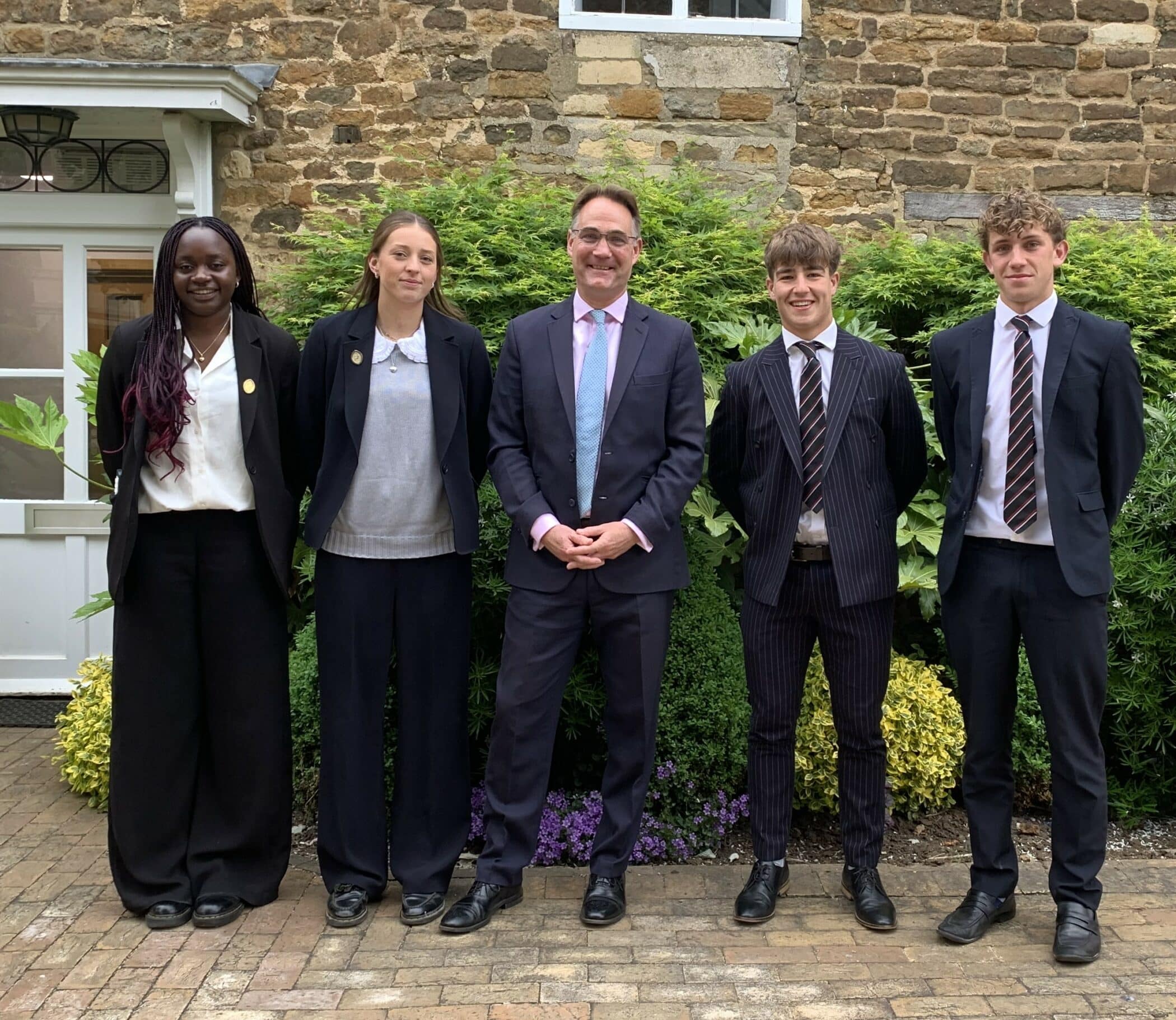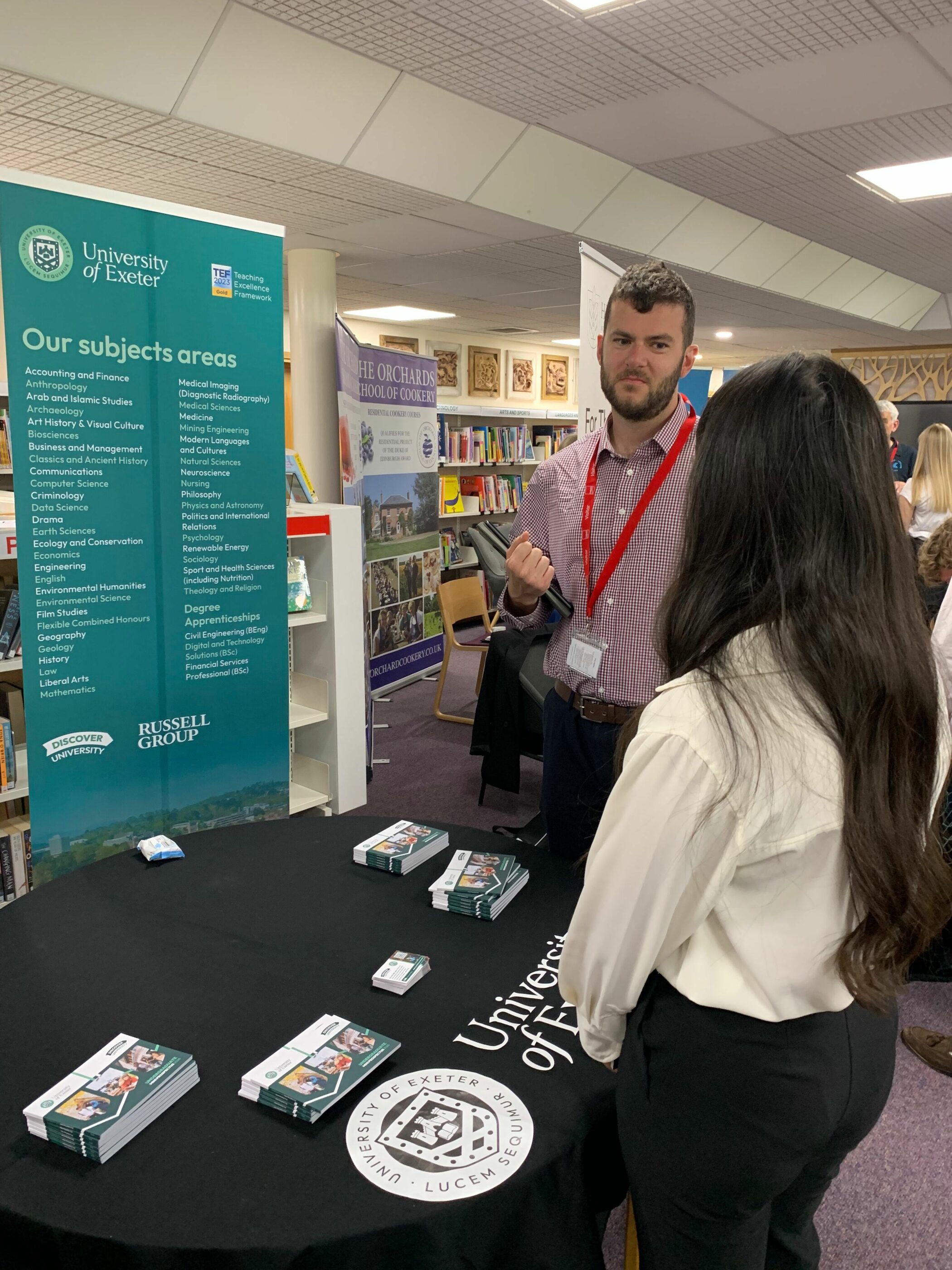Seventh Former Annalise and Sixth Formers Zeme, Theo and Lucas are the editors of SpOken, a literary magazine filled with creative writing by Oakham School pupils.
Here they reflect on the process of creating a new magazine from scratch.
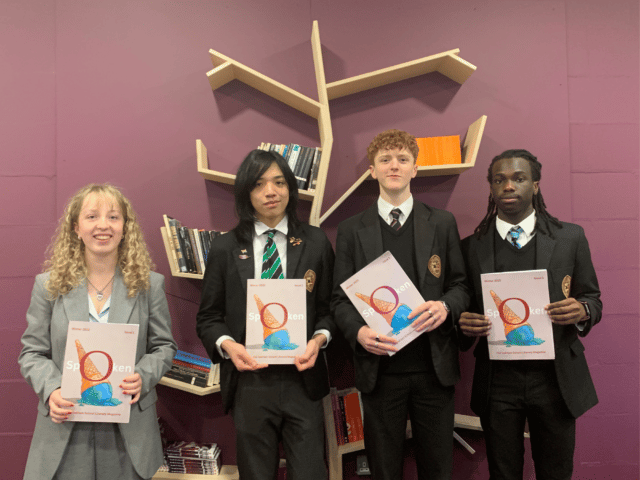
Editorial Designer Annalise recalls seeing the activity description in the Upper School Activities booklet: “I always hoped there would be an activity like this, as I would like to study in this field.”
Deputy Editor Lucas explains why he chose the activity: “I’m very interested in writing and also wanted to get experience of editing and proof reading.”
The first editorial meeting – Associate Editor Theo
“At the first meeting Dr Reddy set out the aims of the magazine. Basically our principal aim was to display and showcase the creative writing from all the pupils at Oakham.”
“I researched what roles that an editorial team in a magazine would usually have, and we chose the roles that we felt suited us best and reflected what were already doing as a group.”
“We were unsure how many submissions we would receive, so we brainstormed ways to incentivise pupils to send in their contributions.”
“We liked the idea of offering a physical prize to encourage pupils to send in their writing and thought that would be most appealing to pupils.”
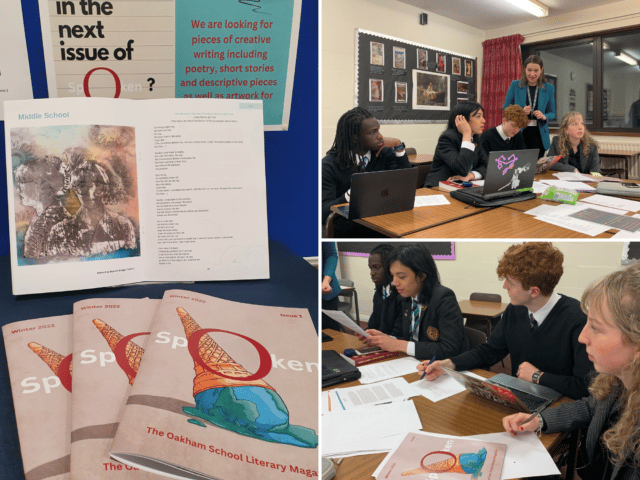
“I was surprised and impressed with the quality and quantity of the writing. I had originally expected that we would receive only a couple of pieces outside of the poems that Form 1 had done as their homework, but, in fact, there were a healthy number of contributions from other years.”
“The majority of submissions, by far, were environment-related poems submitted by Form 1. Of those, we chose a selection and tried to showcase pieces from every year group to ensure a fair representation of everyone in the School.”
“Furthermore, we attempted to ensure a diverse range of topics so readers would not only have pieces about climate change to choose from.”
“We discussed several ideas about the ordering and organisation of the pieces in the magazine, including by genre, form, or topic. In the end, for simplicity’s sake, we decided to group them by year group, which has the added benefit of each pupil’s work being easily located within the magazine.”
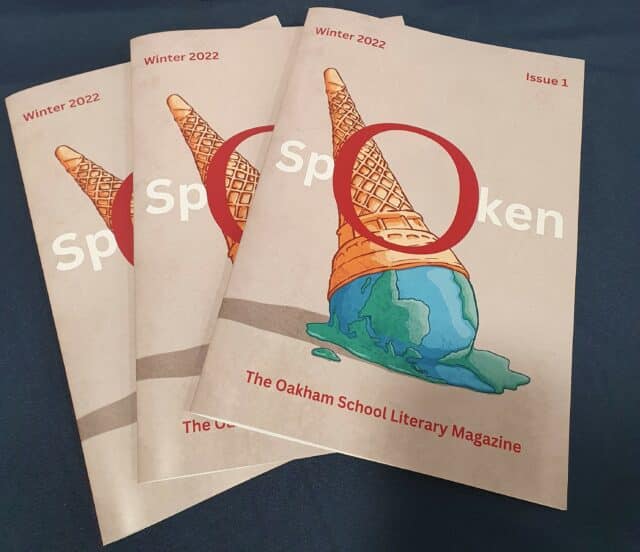
“I chose the image due to its representation of climate change, which was a popular theme for our Lower school writers.”
“I felt that its message was relevant to today’s world and the issues facing our generation. Visually, I had tried more abstract ‘arty’ selections but decided the ‘melting world cone’ was more striking and poignant.”
“We wanted the magazine to be noticeably linked to the School, but we also wanted it to stand up on its own as something different.”
“Above all, we wished to produce something that was created by students, that students could identify with, and that contained their ideas and creations.”
“That’s where we came up with the capital ‘O’ within the magazine title to represent the School’s logo.”
Naming the magazine – Editorial Designer Annalise
“When deciding the name, the team were just brainstorming one Friday afternoon and had ideas like E16 (the name of the classroom where the activity is held) and Merton (the name of the building).
“We ended up landing on the name “SpOken” and felt it matched perfectly, both as a reflection of the content of the magazine and the ‘o’ sound mirroring the School’s name.”
Launching the magazine – Deputy Editor Zeme
With Issue 1 of SpOken out now, Deputy Editor, Zeme, outlines how the team plans to keep the momentum going.
“We are celebrating the launch of SpOken by getting the magazine seen by as many Oakhamians as possible. There’s an amazing exhibition in the library promoting the magazine and we are aiming to launch a few competitions to encourage more writing.”
“We will also be handing out prizes at the end of term assemblies to the contributors whose work the other editors and I have voted as the being the most impressive.”
Future editions – Deputy Editor Zeme
“Issue 2 should be coming out by the beginning of the of the Summer Term and every subsequent issue will also come out at the beginning of term.”
“We want Issue 2 to incorporate more types of writing from all of the different year groups. While the first issue is dominated mostly by Lower School pieces, we hope Issue 2 gets more submissions from pupils in the Middle and Upper School.”
“We are also hoping for even greater variety in the types of writing that pupils send through. Anything would work!”
If you would like to see your work included in a future magazine, please email Dr Reddy at eer@oakham.rutland.sch.uk”




